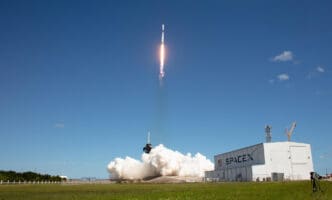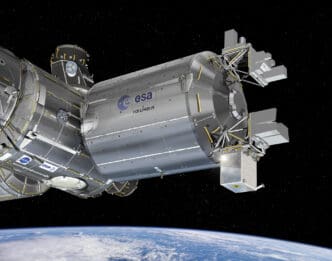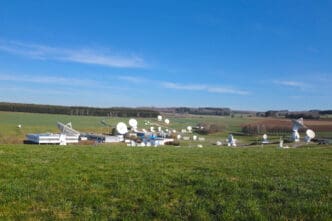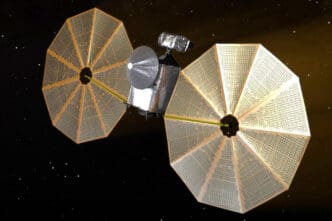In a groundbreaking achievement for China’s space endeavors, two astronauts from the Shenzhou-19 mission successfully completed a nine-hour extravehicular activity (EVA) outside the Tiangong space station, marking a new record for the duration of a spacewalk by Chinese astronauts.
Commander Cai Xuzhe and astronaut Song Lingdong spearheaded the mission as they stepped outside the Wentian experiment module of the Tiangong space station. Cai, donning a Feitian spacesuit distinguished by red markings, made his exit at 11:51 p.m. Eastern on December 16. Perched on the Tiangong’s robotic arm, he adeptly gathered essential equipment from the airlock with assistance from his crewmate, Song Lingdong. Song, in a similarly equipped suit marked with blue, embarked on his set of tasks at 1:32 a.m. Eastern on December 17. Their colleague, Wang Haoze, supported the operation from within the Tianhe module, ensuring their safety and coordination with ground control.
The astronauts meticulously installed space debris protection devices along with inspecting and managing external equipment and facilities. Protective panels were crucially placed to shield cables and pipelines belonging to the thermal control equipment of the Tianhe module from potential debris, a move that highlights China’s attention to detailed safety measures in space.
[twitter-embed-display twitter_url=’https://twitter.com/globaltimesnews/status/1869027874420019241′]
According to Chinese state media, the duration of 9 hours and 6 minutes surpassed a previous spacewalk record of 8 hours and 56 minutes set by NASA astronauts during the STS-102 mission in 2001. The achievement underlines the capabilities of the Feitian spacesuits, which are designed for an operational duration of eight hours, further establishing their reliability. The record-setting EVA was also the first conducted as part of the Shenzhou-19 mission.
Cai Xuzhe is a seasoned space explorer, having previously embarked on a space mission with Shenzhou-14 in 2022. For both Song Lingdong and Wang Haoze, this mission marks their debut in space. The Shenzhou-19 spacecraft, which arrived at the Tiangong station on October 29, is poised for a half-year stay, during which the crew will engage in multiple EVAs and conduct 86 scientific experiments.
The Tiangong station, a testament to China’s swiftly advancing space program, began construction in 2021 following its approval in 1992. The station’s completion was achieved in late 2022, and efforts are already underway to expand this orbital outpost. The Shenzhou-19 mission thereby not only aims to push the boundaries of human capabilities in space but also seeks to contribute significant advancements in life sciences, exemplified by experiments such as studying fruit flies in a sub-magnetic environment.
The successful completion of this prolonged spacewalk by astronauts Cai Xuzhe and Song Lingdong not only enhances China’s standing in the global space community but also paves the way for future innovations and explorations. The Shenzhou-19 mission is a pivotal chapter in China’s human spaceflight narrative, promising further discoveries and achievements.
Source: Spacenews – Twitter







